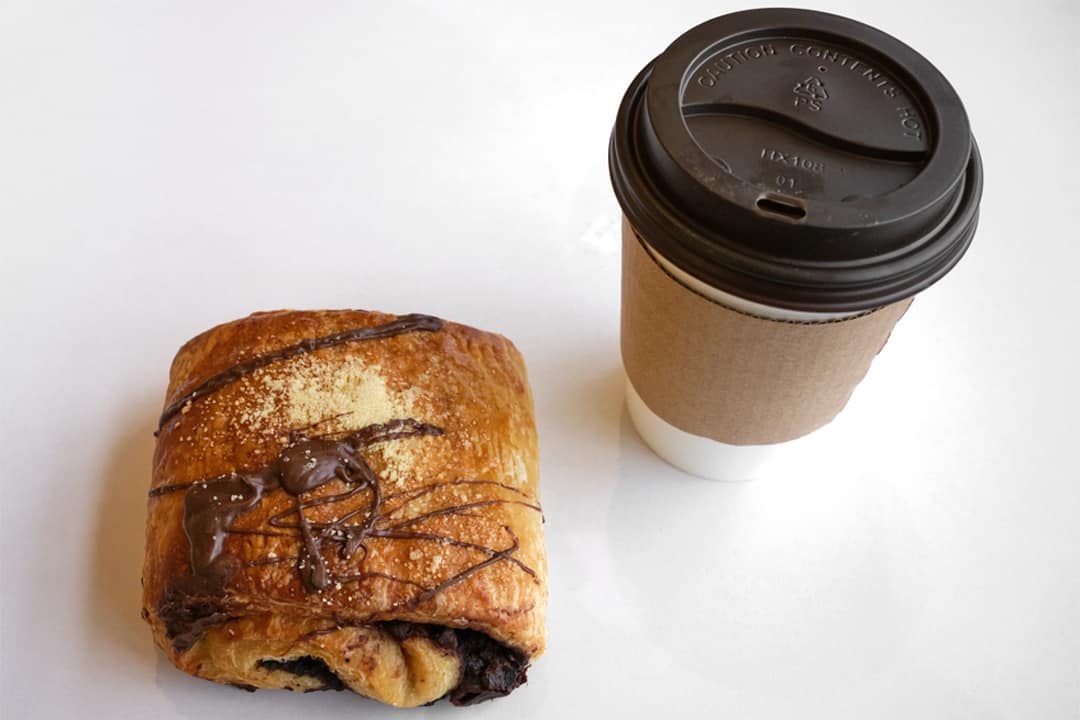From December 21 to January 2, during the university closure, approximately 600 residents continued to live in residence at UTM. These students faced food outlet and cafeteria closures, and were forced to pursue costlier alternatives to feed themselves.
The UTM residence website states that, “During the winter break… all on campus food services will be closed, [and] no caretaking or maintenance services will be provided.”
Some students may have decided to stay in residence due to travel issues. Over the winter break, WestJet and Air Canada combined cancelled over 1000 flights, leaving people stranded in Canada or abroad. Flight prices usually skyrocket over the Christmas holidays, but with all of the last minute cancellations, same day flight prices increased even more. Furthermore, with the projected increase in COVID-19 cases over the next month, many international students at UTM decided to stay in Ontario for the winter break.
Food disparity from campus closures
Students who choose to live on campus are required to purchase a meal plan, some of which cost over $4,000 for the school year. This requirement is to combat the lack of personal kitchens in certain residence buildings, like Oscar Peterson Hall (OPH) at UTM. OPH, which is the most popular residence for first-year students, has one community kitchen on the sixth floor to cater to the whole building. Most of the other residence buildings are equipped with personal kitchens.
A fourth-year student and don at the OPH residence — who requested anonymity because she is reapplying for the position — feels that, over the winter break, students remaining on campus were left to fend for themselves.
Unable to utilize her meal-plan money, she found herself spending $60 a day on Uber Eats. She explained that she would order three meals at a time to save money.
Luka Zviadadze, an international student, ordered food from Uber Eats for every day of the winter break, spending on average $30 a day.
Both the don and Zviadadze found themselves spending far more money than normal.
Unfortunately, students unable to afford the steep prices of Uber Eats had few other avenues through which to procure food. The University of Toronto Mississauga Students’ Union food centre, which, during the year, facilitates access to food for students experiencing food insecurity, also closed for the winter break. This made it more difficult for students to find healthy and affordable food.
Social consequences as a result of campus closures
Consequences of campus facilities were not limited to the availability of food. The Colman Commons and Davis cafeteria are the main social hubs on campus, and their closure negatively impacted social life on campus.
In an interview with The Varsity, the don said that the isolation and lack of social life were reminiscent of the isolation era of COVID-19.
“You would walk through campus and you wouldn’t expect that 600 people live here,” she said. “It’s like a ghost town, there’s not a single soul and there’s no one out, because there’s nothing to do.”
The closure of campus buildings left students who remained on campus with no way to interact with each other and nowhere to go. “It’s barren in these halls, as there’s no one here, but there are so many people here, they’re just isolated in their rooms,” the don said.
“Most of the students who have remained in the residences were international students,” said Zviadadze. They explained that for some international students, the majority of their social life consists of campus interactions: “So when the campus was completely closed, [it] definitely had a negative impact on our daily social life.”
24-hour quiet hours
UTM residence administration hung up “24 Hour Quiet Hours” posters, explaining to students that these Quiet Hours are active and enforced from December 7, 2022 until January 2, 2023.
“During this time we ask that all students respect their peers [sic] right to a quiet study space,” the posters read.
In an interview with The Varsity, the don explained that her responsibilities as a don were to “look out for any noises… if you hear a big gathering… you have to disperse them and tell them all to go home and call campus safety.” No guests and no non-resident students are allowed on residence during the holiday period.
Garbage collection concern
Due to the interruption of maintenance and caretaking services, the don witnessed accumulating piles of trash that ended up covering accessibility buttons. She explained that some of the garbage piles were taller than her.
This lack of maintenance extended to the OPH communal kitchen, which she said is meant to be shared between 600 students. During the break, its unsanitary conditions prevented its use.
“It’s not cleaned, especially during the winter break,” the don said.
UTM response
In a statement addressed to The Varsity, a UTM spokesperson revealed that activities were scheduled for every day of the winter break and that mental health support and resources were made available to residents, including the 24/7 My Student Support Program.
The UTM spokesperson did not explain the reasoning behind the closure of food outlets, but stated that students were advised of the closures.
The spokesperson continued, “[Due] to reduced occupancy, the cleaning schedule was scaled back,” adding, however, that supplemental cleaning was performed during the break. The website explains that “no caretaking or maintenance services will be provided above and beyond emergency services.”
Proposed solutions
Faced with closed food outlets and unusable communal kitchens during the winter break, the don suggested a solution for both the social isolation and lack of food: “If Colman was open… it would solve the food issue… [and] the social issue.”


